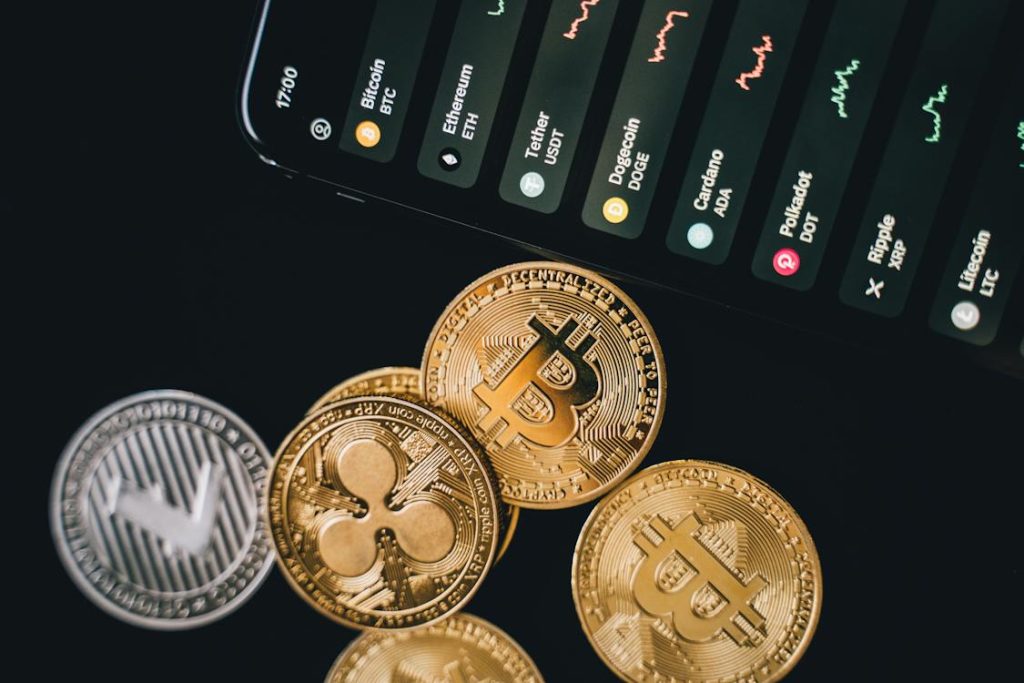
The global gaming industry has long been one that both initiates and accelerates innovative trends. When it comes to advanced technology, gaming has long been the ideal partner industry for sustained, mainstream growth. We’ve seen this demonstrated time and time again, with the popularity of everything from content streaming to augmented and virtual reality being largely driven by gaming.
While the cryptocurrency and the blockchain industry is by no means a niche market, it too is being given a boost by the integration of gaming. This article will take a closer look at the GameFi sector, a new trend that has the potential to reshape both the crypto and the gaming markets in the very near future.
What is GameFi?
Key GameFi Terminology
- Play-to-earn Gaming: The sector is defined by play-to-earn models, where players can earn cryptocurrency or in-game tokens by actively participating in the game. This is a shift from traditional gaming, where players invest time and effort without necessarily gaining tangible rewards.
- Blockchain Technology: Titles in the sector run on decentralized blockchain technology, which ensures transparency, security, and ownership of in-game assets.
- NFTs (Non-Fungible Tokens): Non-fungible tokens are unique digital assets that represent ownership of specific in-game items. GameFi often utilizes NFTs to give players verifiable ownership of rare or valuable in-game assets, such as characters, skins, and virtual real estate.
- Decentralized Finance (DeFi): GameFi integrates elements of decentralized financial services, creating opportunities for players to engage in numerous financial activities within the gaming ecosystem.
GameFi is the amalgamation of gaming with decentralized finance. In the sector, users have the opportunity to play games for virtual rewards that have real-world value, such as cryptocurrencies or NFTs (non-fungible tokens).
Of course, playing games with financial rewards is hardly a new idea. iGaming, a buoyant sector of the gaming industry that includes online sports betting, poker, and casino games like blackjack, has existed globally in some form or another since the very earliest days of online gaming. In Canada specifically, 2022 legislation has transformed the sector into a regulated market, enabling operators including PokerStars Casino to launch digital versions of traditional casino games like blackjack in which users can play for real money prizes. So, what’s so different about GameFi?
Understanding the GameFi Economy
GameFi operates using a totally different ecosystem than any other gaming sector, even that of iGaming. Essentially, the integration of blockchain technology into games has created a new wave of P2E titles that give players sole ownership of the in-game items they earn. These items have real-world value and, what’s more, gamers are actually remunerated for the time they spend playing such titles as opposed to having to pay to play.
Two core aspects that make the GameFi so revolutionary are asset ownership and open markets.
In most traditional games, players can purchase assets like character skins, map upgrades, weapons and resources, etc but they only exist within the gaming environment. The ultimate owner of these assets is the game’s publisher. In P2E games, players are granted full ownership over their digital assets, which is verified with appropriate transitions on the game’s underlying blockchain.
Furthermore, the concept of decentralization creates open marketplaces in the GameFi ecosystem. Because players have true ownership of their assets, be they cryptocurrency tokens earned in the game or NFT rewards, they are able to then sell, trade, or even stake them in decentralized exchanges.
Recommended GameFi Titles
As with many other crypto markets, GameFi has undergone a substantial growth spurt in recent years, resulting in thousands of titles being made available to play. Since the cryptocurrency industry remains unregulated, there’s no way to predict the quality of a new GameFi project. If you’re curious to explore the sector, we recommend sticking with more established games such as Axie Infinity, which was one of the original crypto games to gain prominence during the late 2010s.
Another well-established title to check out is The Sandbox, which appeals to both players and game developers. This blockchain-based platform gives access to a variety of playable P2E and crypto games and allows users to create and monetize their own games and experiences.
In terms of newer titles, the virtual gaming arcade Metacade, which is built on the Polygon network, has impressed the crypto and gaming communities alike. Calvaria: Duels of Eternity is also another reputable new project, which combines GameFi with collectible trading card game mechanics.






More Stories
The Imperative of Responsible Gaming: Navigating the Thrill
Signs of Secure Online Casinos
Offline VS Online casino games in 2022